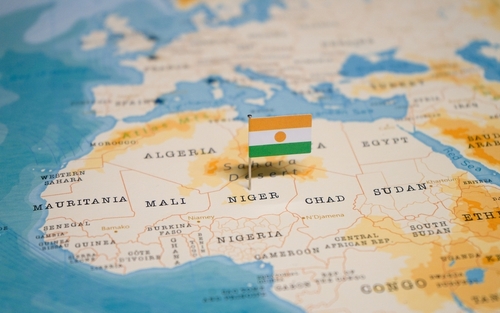Alert 178 – West Africa on Edge as ECOWAS stares down Niger coup leaders

The leaders of the 26 July Nigerien coup agreed on 13 August to hold direct talks with the Economic Community of West African States (ECOWAS) indicating that ECOWAS’s threat of military intervention has had some impact on the coup leaders.
Tensions in West Africa have been elevated ever since Niger’s armed forces – led by General Abdourahamane Tchiani of the Nigerien Presidential Guard – seized power and imprisoned President Mohamed Bazoum. This was the fourth coup in West Africa in the past three years following similar military power grabs in Burkina Faso, Guinea, and Mali. As such, ECOWAS is under pressure to react decisively in order to discourage further coups in the region.
Immediately after the coup, ECOWAS imposed economic and financial sanctions on Niger and issued a 6 August deadline for Tchiani to relinquish power and re-install Bazoum. The regional bloc hinted that military intervention was being considered should Tchiani refuse. This deadline passed with the coup leaders defying this external pressure. ECOWAS’s leaders then met on 10 August and called for talks to discuss the restoration of democratic civilian rule in Niger and notably again refused to exclude armed intervention. In fact, the bloc elected to activate the ECOWAS standby force, bringing the prospect of an armed conflict one step closer.
The ECOWAS standby force is a regional peacekeeping force aimed at addressing security crises in the region, most notably for counter-terrorism operations and addressing military coups. It is part of the larger African Union (AU) standby force and all five major regional blocs on the continent have a similar regional defence mechanism. The force comprises troops contributed by ECOWAS’s member states. The order to ‘activate’ the force really just means that the bloc’s member states must begin the legal and logistical processes needed to be able to deploy the force rapidly if a decision is taken to intervene in Niger. Importantly, ECOWAS also elected to impose border closures, travel bans, and asset freezes on Niger to place increased pressure on the coup leaders.
These actions appear to be having some impact as illustrated by the Tchiani’s decision to agree to talks after two weeks of ignoring and denouncing such overtures. The decision to activate the standby force indicates that ECOWAS is serious about its threat to forcibly reverse the coup if necessary. In addition, the sanctions and border closures have already had a noticeable impact on land-locked Niger. The country is experiencing widespread electricity blackouts as it receives around 70% of its electricity from Nigeria which has since been cut off. Niger is also heavily dependent on neighbouring countries such as Nigeria and Benin for essential goods and foodstuffs. As such, the border closures and sanctions have already had a major impact on the country’s economy. Tchiani’s military junta is well aware that their position is not sustainable under the current conditions and that they could face a popular uprising or even another military coup should the situation worsen.
ECOWAS cannot afford to let the Niger coup stand. The bloc’s failure to properly intervene inthe Mali, Guinea, and Burkina Faso coups have set a precedent for inaction and ECOWAS’s leaders are fearful of a return similar waves of coups that occurred in the region in the 1970s and 1980s. However, military intervention is widely unpopular across ECOWAS. Such an act would have a destabilising effect across the region and provide an opening for the various Islamist militant groups in West Africa and the Shael to exploit. It also risks a major regional conflict as the military juntas in Burkina Faso and Mali have hinted that they would rally to Niger’s defence in the event of such armed intervention. Accordingly, the probability of such intervention is, while possible, unlikely to occur. At least as long as talks remain a possibility.
This saga underscores wider patterns in West Africa’s political and security environments. Persistent economic challenges, corruption, and insecurity are fuelling popular frustration with civilian governments. This has created a more welcoming environment for military putsches within these states. Similarly, the rivalry for influence between France and Russia in the region is aggravating these social tensions. All four of the recent West African coups have been marked by anti-French rhetoric and sentiment. In addition, shortly after the coup in Mali, its new junta invited Russia’s Wagner Group private military company into the country to combat insurgents. A similar development is possible in Niger, where pro-junta rallies have been notable for the presence of Russian flags and pro-Russian sentiment. This clearly is laying the ground for Russia to play an enhanced security role in the country either formally or through the use of private military companies. This would come at the expense of France.
The Niger coup poses a definitive challenge for ECOWAS. The bloc needs to send a message across the region that coups will not be tolerated while simultaneously stressing its independence from external powers. This must all be done while addressing regional insurgencies in which states such as Niger, Mali, and Burkina Faso are key. The situation has resulted in elevated political and security tensions which threaten to devolve into a wider destabilising conflict if the matter cannot be resolved via a negotiated settlement.
